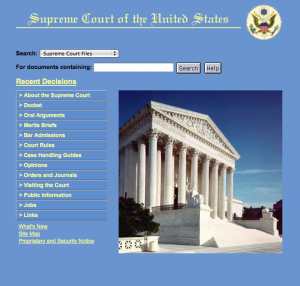In January of this year, the US Department of Justice for the first time argued that it could enforce Title IX of the Education Amendments of 1972, 20 U.S.C. § 1681 et seq., to seek protection against discrimination based on gender expression. The DOJ made the argument in a Memorandum of Law in support of its motion to intervene in the case of J.L. v. Mohawk Central School District filed in US District Court for the Northern District of New York. The New York Civil Liberties Union filed the civil rights complaint in August of 2009 on behalf of a male teenage student bullied for acting too effeminate. The suit maintained that district officials were aware of the bullying and did nothing to stop it. The School District denied the allegations. The Motion to Intervene presented to the District Court a novel question about the reach of Title IX.
Before the Court could rule on the motion, the parties reached a settlement agreement providing $50,000 to the plaintiff, $25,000 to the ACLU, district-wide training on appropriate responses to anti-gay harassment, and payment to cover the plaintiff’s continued therapy. The NY Times’ article Gay Student Settles Lawsuit Against NY District and the NYCLU website provide more detail on the facts of the case and a link to the settlement agreement.
The issue of bullying and especially cyber-bullying in schools has drawn the attention of lawmakers. NY State Senator Kemp Hannon has spread cyber-bullying awareness on Long Island and across New York State and introduced legislation which prohibits bullying and cyber-bullying on school property and establishes a statewide central registry for bullying, cyber-bullying and hazing complaints. “Tragically, cyber-bullying has become a new reality, and thus, a serious focus in our communities. We must respond by increasing awareness as well as prohibiting such dangerous behavior,” said Senator Hannon whose bill S7158 increases penalties for hazing and prohibits bullying and cyber-bullying.
 The Brooklyn Law School Library has in its collection material on the topic. See Confronting Cyber-Bullying : What Schools Need to Know to Control Misconduct and Avoid Legal Consequences by Shaheen Shariff (Call # HV6773.2 .S5 2009) with these chapters: Cyber-misconduct : who is lord of the bullies? — Profile of traditional and cyber-bullying — Cyber libel or criminal harassment: when do kids cross the line? — Student free expression: do the schoolhouse gates extend to cyberspace? — Fostering postive school environments: physical and virtual — Censoring cyberspace: can kids be controlled? — The tragedy of the commons: lessons for cyberspace?
The Brooklyn Law School Library has in its collection material on the topic. See Confronting Cyber-Bullying : What Schools Need to Know to Control Misconduct and Avoid Legal Consequences by Shaheen Shariff (Call # HV6773.2 .S5 2009) with these chapters: Cyber-misconduct : who is lord of the bullies? — Profile of traditional and cyber-bullying — Cyber libel or criminal harassment: when do kids cross the line? — Student free expression: do the schoolhouse gates extend to cyberspace? — Fostering postive school environments: physical and virtual — Censoring cyberspace: can kids be controlled? — The tragedy of the commons: lessons for cyberspace?
 See also Bullying in Schools: How Successful Can Interventions Be? edited by Peter K. Smith, Debra Pepler, and Ken Rigby (Call # LB3013.3 .B85 2004) a comparative account of the major intervention projects against school bullying carried out by educationalists and researchers since the 1980s, across Europe, North America and Australasia.
See also Bullying in Schools: How Successful Can Interventions Be? edited by Peter K. Smith, Debra Pepler, and Ken Rigby (Call # LB3013.3 .B85 2004) a comparative account of the major intervention projects against school bullying carried out by educationalists and researchers since the 1980s, across Europe, North America and Australasia.


 The BLS Library has in its collection several items on the subject of animal rights including
The BLS Library has in its collection several items on the subject of animal rights including  The Brooklyn Law School Library has this recent item on the topic,
The Brooklyn Law School Library has this recent item on the topic,  The Brooklyn Law School Library has in its collection material on the topic. See
The Brooklyn Law School Library has in its collection material on the topic. See  See also
See also  Y
Y The former, much maligned GPO URL, http://www.supremecourtus.gov, will redirect users to the new site through July 1, 2010. The Office of Public Information of the US Supreme Court issued a
The former, much maligned GPO URL, http://www.supremecourtus.gov, will redirect users to the new site through July 1, 2010. The Office of Public Information of the US Supreme Court issued a